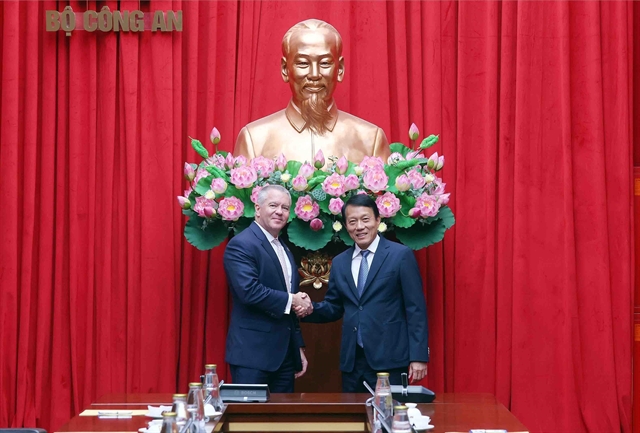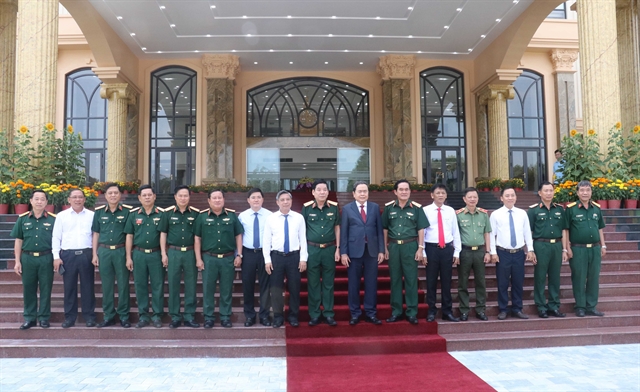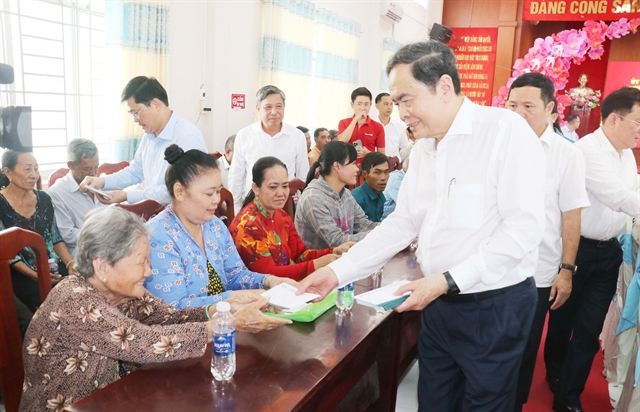 Society
Society

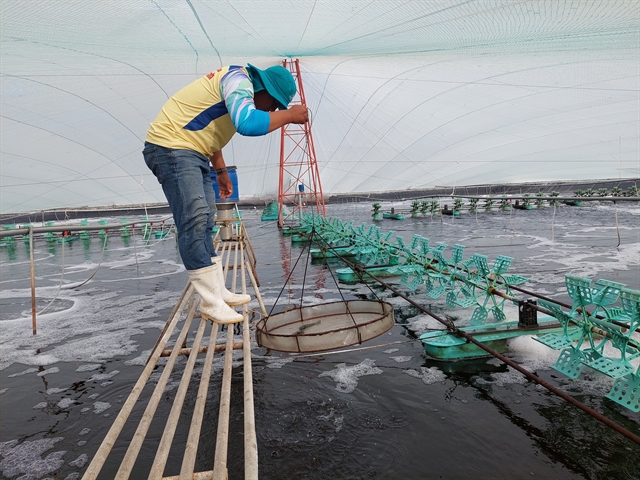
|
| A high-tech shrimp farm in Vĩnh Long Province’s Thạnh Phong Commune is equipped with modern facilities such as net houses, automatic feeders, oxygen generators and chlorine aerators for water treatment. — VNA/VNS Photo Chương Đài |
VĨNH LONG — The adoption of modern farming models has helped farmers in the Mekong Delta province of Vĩnh Long cut costs, raise productivity and improve quality.
These models cover shrimp, rice, fruits, and other crops.
Many farmers have adopted multi-stage shrimp farming to improve yields and reduce pollution of the environment.
Đặng Văn Bảy, a farmer in Thạnh Phong Commune, is one of the pioneers.
He previously raised white-legged shrimp in earthen ponds using semi-intensive methods, and later in lined ponds with intensive techniques, but disease outbreaks and market fluctuations caused repeated losses.
Since 2016 he has learnt advanced methods and adopted high-tech multi-stage shrimp farming.
“Profits from high-tech shrimp farming are five to six times higher than from traditional methods,” he said.
“The biggest challenge lies in capital and strict technical standards. Every step, from shrimp fry to feed and water treatment, must meet requirements.”
He now invests in shrimp farms that meet international ASC and BAP standards for export.
From a few hectares, he has expanded to six farms covering more than 40ha. They use net houses, automatic feeders, oxygen generators, and modern water treatment systems.
Rice farmers are also turning to high-tech methods.
In Tân Xuân Commune, 62 households have joined a 40ha model cultivating rice using advanced techniques, earning higher profits.
Trần Văn Công, a farmer in Tân Xuân’s Phú Thạnh Hamlet, said that in 2023 the commune began applying technologies such as smart insect monitoring, salinity alerts and automatic irrigation.
“Since the pest detection system was installed, we can identify pests accurately and spray the right chemicals at the right time. Costs have fallen significantly, but yields have still increased.”
Grain quality has improved, and traders now pay higher prices, he added.
After the merger of the former Bến Tre and Trà Vinh provinces into Vĩnh Long on July 1, the enlarged province’s agricultural production has become more diverse.
It now has major strengths in rice, aquaculture, fruit, seedling, and ornamental plant production.
In the first half of this year the value of its agriculture was nearly VNĐ45 trillion (US$1.7 billion), or 31 per cent of total economic output.
Trần Trường Giang, deputy director of the province Department of Agriculture and Environment, said: “Climate change is driving up production costs, while export markets demand higher standards.
“Applying modern technology is no longer a choice but a necessity to raise productivity, quality and competitiveness.”
Obstacles to this include high investment costs, limited access to capital, weak technology adoption skills, and unstable markets for high-tech products, he said.
High-tech and organic farming are now regarded as the main foundations of the agriculture sector, he added.
To build ecological, modern and sustainable agriculture, the province has announced policies to attract investment in high-tech farming.
It also encourages value chain links between farmers, co-operatives and enterprises, creating stable ties between production, processing and markets.
Training and technology transfer programmes are being expanded to help farmers adapt to high-tech and organic methods.
Attracting investment
Vĩnh Long is soliciting investment in a number of agricultural projects in 2025–30.
These include the Phước Hậu high-tech agricultural zone (100ha, VNĐ250 billion), the Thạnh Hải high-tech shrimp breeding zone (62ha, VNĐ3.7 trillion), and the Thạnh Phú high-quality aquatic seed production centre (19ha, VNĐ1.13 trillion).
The country’s largest coconut growing province also prioritises investment in processing of the nut at the Đông Bình, Gilimex Vĩnh Long, Cổ Chiên, and Ngũ Lạc industrial parks.
The province has increased investment in agricultural infrastructure.
On August 19 it inaugurated a major irrigation project in Hưng Khánh Trung and Nhuận Phú Tân communes to support fruit, flower and ornamental plant cultivation on more than 5,260ha.
The project includes the 30m-wide Cái Hàng sluice, a bridge and lighting systems, and cost VNĐ150 billion (US$5.7 million).
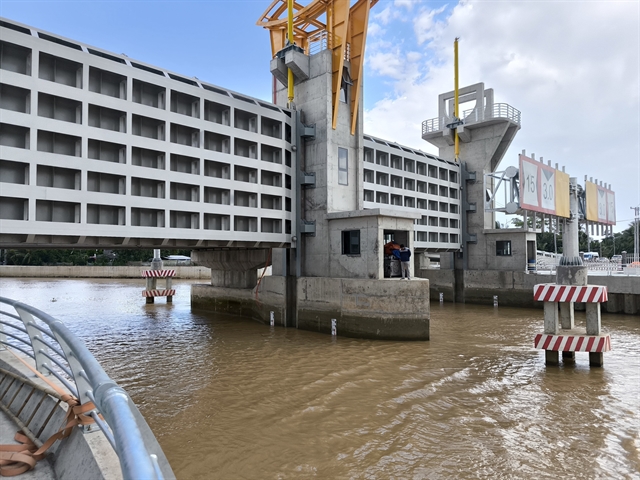
|
| The Cái Hàng sluice helps irrigate more than 5,200ha of fruit trees, flowers and ornamental plants in Vĩnh Long Province. — VNA/VNS Photo Huỳnh Phúc Hậu |
Nguyễn Quỳnh Thiện, deputy chairman of the province People’s Committee, said: “This is a key irrigation project that will control salinity, conserve freshwater, protect production, promote eco-tourism, and support sustainable development.”
Nguyễn Văn Đức, who grows seedlings, flowers and ornamental plants in Hưng Khánh Trung Commune, said saltwater intrusion into rivers used to cause severe damage.
In 2019 his family lost more than VNĐ200 million (US$7,600) due to salinity, he revealed.
“With the operation of the Cái Hàng sluice, there is enough freshwater for irrigation during the dry season. Farmers feel secure despite the increasingly harsh climate change.” — VNS



